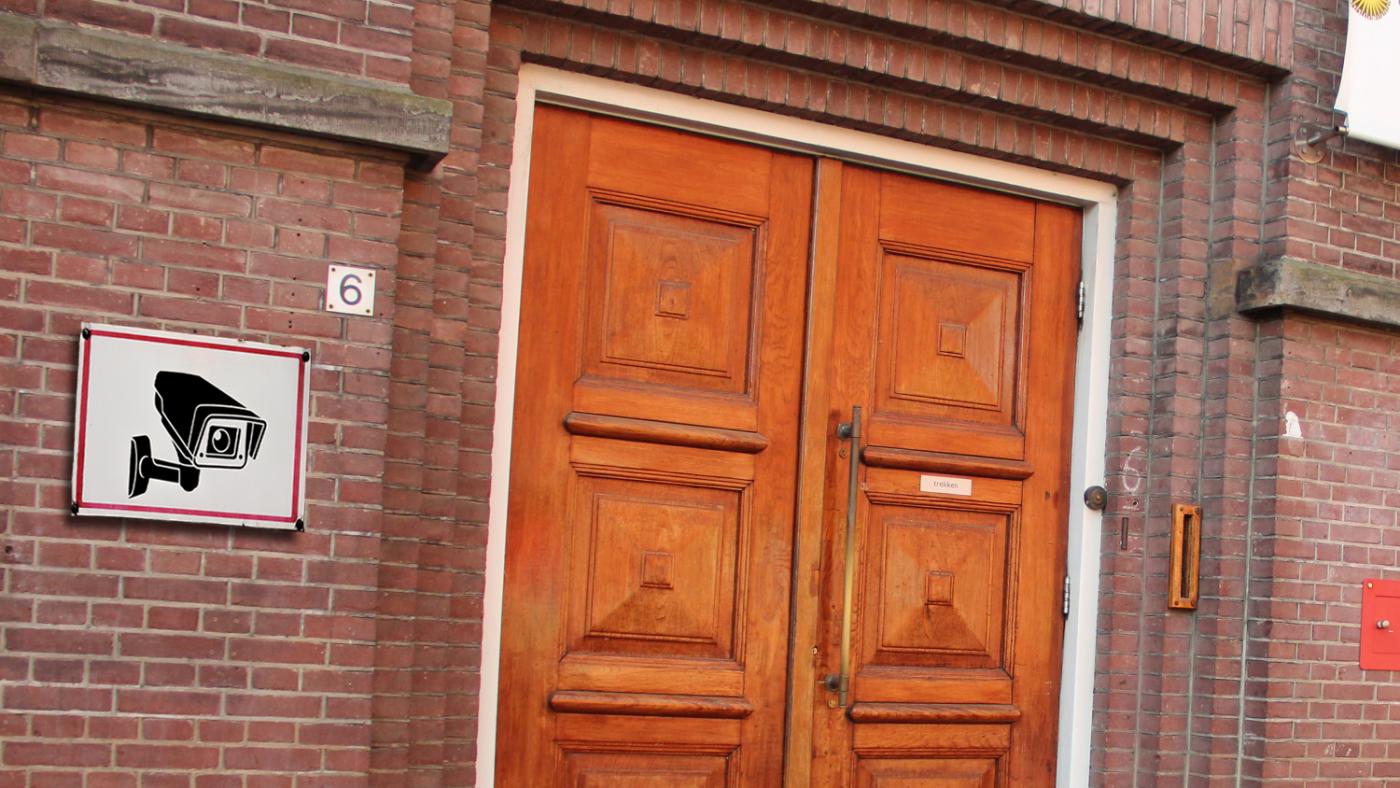'We weren't consulted'
Uproar about security cameras on Bijlhouwerstraat

The security department of the Facility Service Centre (FSC) is conducting a scan of all university buildings. One of the things they are evaluating is whether current safety measures actually meet UU's standards. For example, are the entrances to the buildings secure enough to identify people who have no business being on the university's premises? Is there anyone using the emergency exits unauthorised? The cameras were installed as a means for the security control room to keep an eye on the buildings during and after opening hours.
“We've already installed four hundred cameras across the university”, says Joost Petrusma, Department Head at the FSC Security. “You can think of bicycle racks, car parks, and building entrances and exits. Often they have been hanging there for years. Now we are going to investigate if they are all necessary.” To do so, the security team has a list of criteria, also from privacy perspective. Monitoring the entrance of the buildings is one of them, but cameras could also be useful in an emergency, such as when a building has to be evacuated because of a fire outbreak. The scan is not only going to scrutinise the role of each camera but all security measures in technology and service, including how many invigillators and security guards are walking around.”
Apology
The uproar concerns the building on Bijlhouwerstraat, where the FSC installed cameras without consulting with the faculties first. “This is not the way things should be done,” admits Petrusma. “Normally, when a scan shows that cameras are necessary at the entrance of a building and at the emergency exits, the Security department elaborates a plan, taking advice from a privacy officer in doubtful cases and which is discussed with the concerned faculty. The employees are informed as well, with an explanation of why the cameras are necessary. In this case, cameras have been installed without any previous discussion, and that's why people felt uncomfortable. We wrote an apology right away.”
The letter doesn’t mean that the cameras will be taken down, though. “I expect that the security scan will show that these cameras do increase safety. Of course, objections and comments will be listened to carefully and may lead to adjustments. The images are being saved for a maximum of seven days. This is done at ITS data centres, in the Netherlands and a very limited group of administrators within FSC Security have access to stored images. Then they are deleted. If a theft takes place inside the building, for example, we are able to identify the perpetrator as long as the infraction didn't happen longer than seven days ago.”
Fundamental question
Albert Meijer is a Professor in Public Innovation who works in the building located on Bijlhouwerstraat. He is against the cameras because he thinks they are a violation of privacy. In his view, before employing technology that affects people such as cameras, we should always ask ourselves a crucial question: is it desirable to film everybody all the time? “The privacy of students, employees and visitors matters and it is now being sacrificed in the name of an alleged contribution to safety. Some of my colleagues told me that they don't feel safe being constantly filmed in their workplace. The resistance to cameras in the lecture halls has demonstrated that such worries exist. The decision to install cameras shouldn't rely on whether it is or isn't 'organised properly'. Rather, it is a fundamental issue in which a whole set of values must be taken into account.”
Risk assessment
According to him, schools are being asked by the Dutch Data Protection Authority to use cameras only if the goal can’t be reached in any other way. “We, from the focus area Governing the Digital Society, always emphasise how crucial it is to consider public values when using technology. Myself, I always recommend public institutions to make a good analysis of public values and start an open debate about it before employing drastic technological measures. I would therefore like to advise and request the FSC to set up a debate with students and employees about the desirability of cameras in our buildings."
Petrusma acknowledges that the choice to install cameras touches upon privacy issues and that it should be communicated well to students and employees. “You have to ensure privacy very well, especially if, for example, the exceptional case arises where someone has a workplace next to an entrance and there is no way to prevent the workplace from being in view. At the end, we will always have to make a risk assessment taking not only the safety of the buildings into account but also the safety of employees and possible privacy-risks. That's why all proposals are extensibly discussed with the privacy officers and the faculties.” It is not yet clear what is going to happen with the cameras in the building on Bijlhouwerstraat. ""We will engage in further discussions first. Until then, they are off."